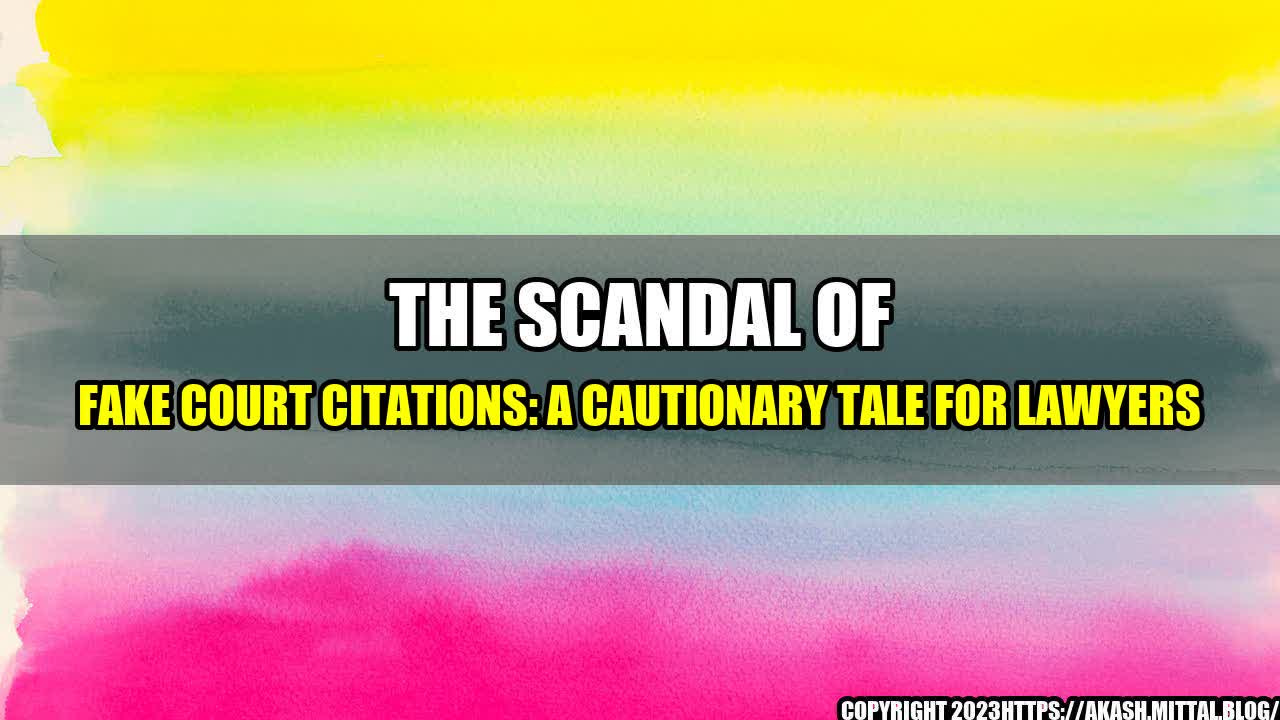The Scandal of Fake Court Citations: A Cautionary Tale for Lawyers


It began with a routine legal brief, penned by a respected lawyer. The brief cited several previous cases to support the lawyer's argument. But upon closer examination, something was amiss. The citations were fake; the cases did not actually exist.
This was the shocking revelation that recently rocked the legal world. The lawyer in question, who shall remain unnamed, was forced to publicly apologize for his unethical behavior. But this was merely the tip of the iceberg.
As it turns out, fake court citations are not uncommon in the legal profession. Lawyers have been known to use these citations to bolster their arguments, deceive judges and juries, and win cases. But what are the implications of this unethical practice?
The consequences of using fake court citations are severe and far-reaching. For one, it undermines the credibility of the legal profession as a whole. If lawyers are seen as willing to deceive judges and juries, then what does that say about the justice system as a whole?
Furthermore, using fake citations can be detrimental to the outcome of a case. If a judge or jury discovers that a lawyer has used fake citations in their argument, then their credibility and trustworthiness are immediately called into question. This could result in the lawyer losing the case, and potentially facing disciplinary action from their law firm or state bar association.
Lastly, fake court citations can have a damaging impact on the reputation of the lawyer who uses them. In today's digital age, information travels quickly, and news of a lawyer's unethical behavior can spread like wildfire, tarnishing their reputation and making it difficult for them to attract new clients or maintain current ones.
The best way to avoid using fake court citations is to do your research. Make sure that the cases you are citing actually exist, and that they support your argument. Use reputable sources for your research, such as legal journals or databases, and read the cases in full before citing them.
Another way to ensure that you are not using fake citations is to enlist the help of a legal researcher or librarian. These professionals can help you find the cases you need, and can ensure that your citations are accurate and up-to-date.
Lastly, it's important to always be transparent and honest in your legal arguments. If you don't have a strong case, then don't try to make it stronger by using fake citations. Instead, focus on building a solid argument based on facts and evidence. Your credibility and reputation are too valuable to risk.
The use of fake court citations is a serious ethical violation that can have severe consequences for lawyers who engage in this practice. It not only undermines the credibility of the legal profession, but it can also harm the outcome of a case and damage a lawyer's reputation. To avoid using fake citations, lawyers should do their research, work with legal professionals, and always be honest in their arguments.
Law and Ethics
Curated by Team Akash.Mittal.Blog
Share on Twitter Share on LinkedIn